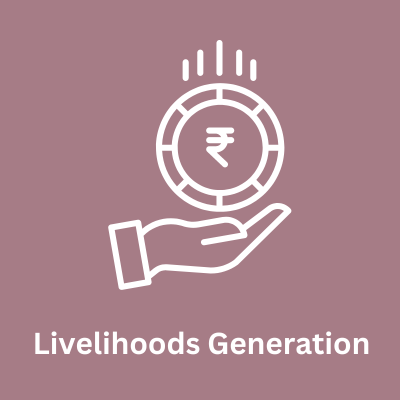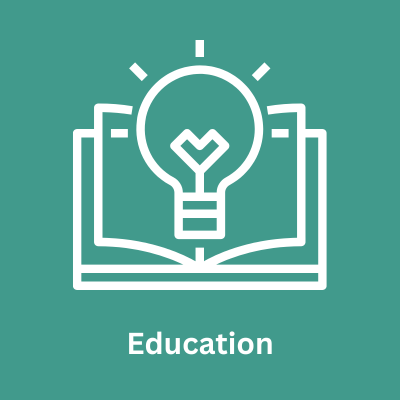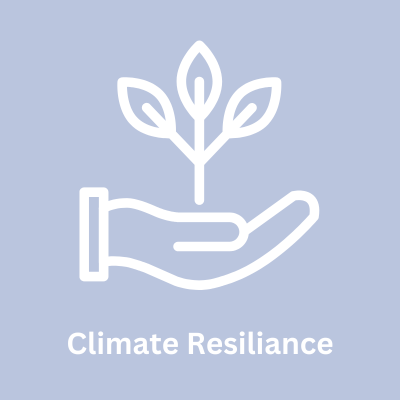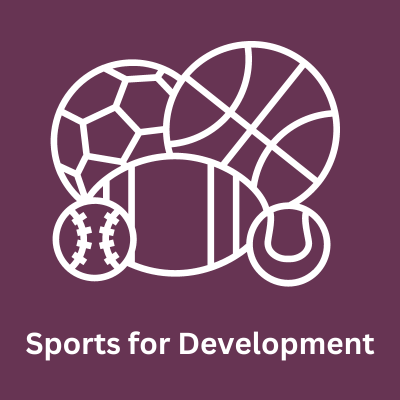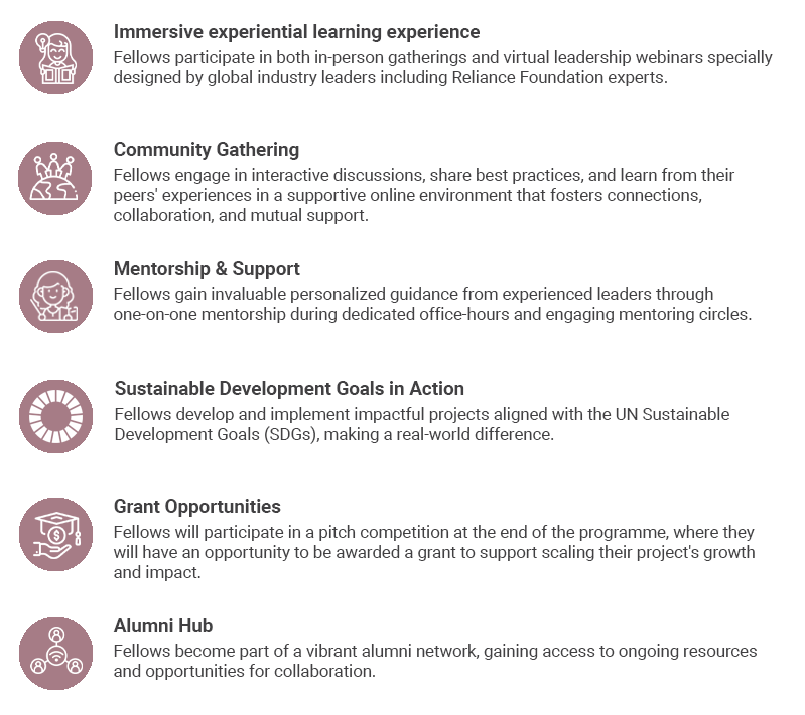Women Leaders India Fellowship 2024-25
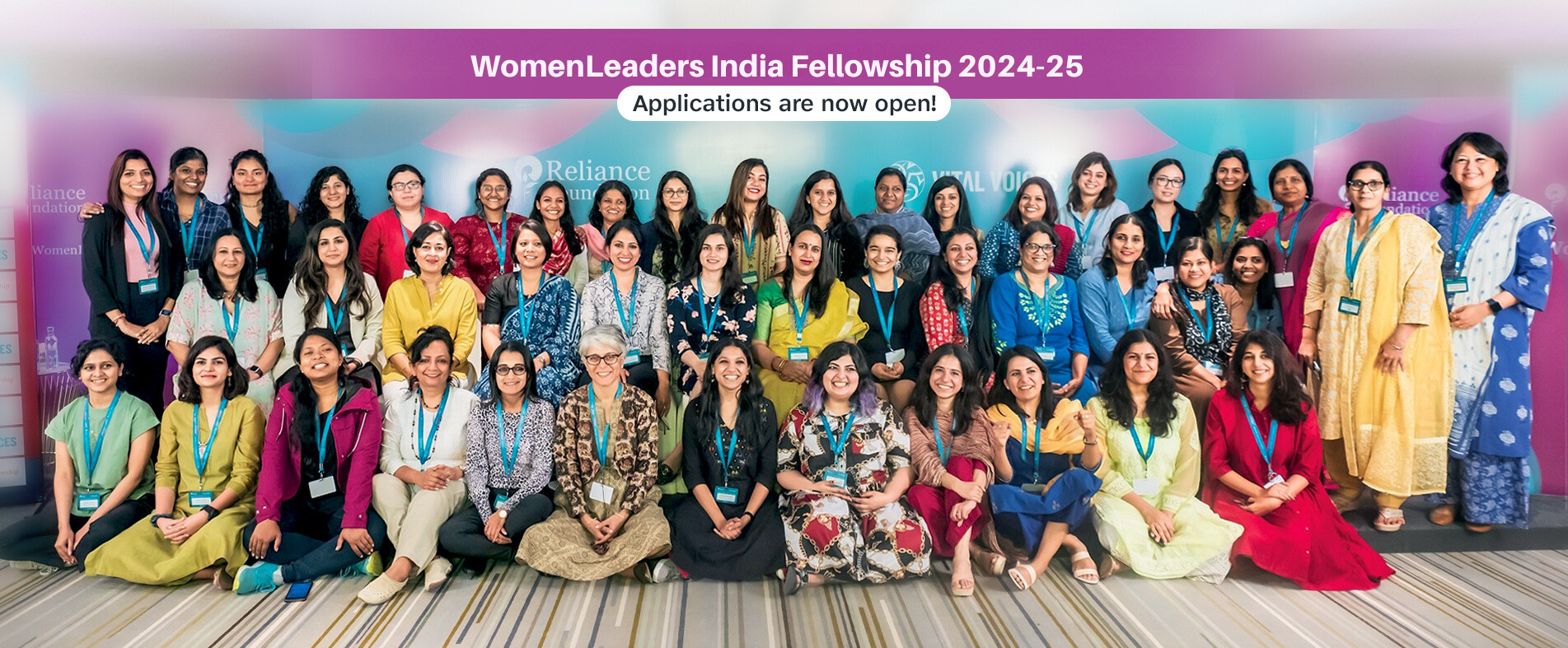
![]()
Application closes on 29th July 2024
At Reliance Foundation, our vision is to build an inclusive India by pioneering a holistic model to address India’s multifaceted development challenges, and contribute to its collective aspirations. Central to our philosophy is the commitment to enhance the quality of life of people from marginalised and vulnerable communities, by empowering them and catalysing change through innovative and sustainable solutions. Our steadfast endeavour is to create replicable and scalable models of development through an integrated approach in the true Reliance spirit of maximising societal value for all, and making it a movement.”
Women’s leadership in India is pivotal to drive social and economic progress. From grassroots to governance, women are catalysts for change. Embracing their leadership fosters inclusivity, equity, and sustainability, crucial for India’s prosperity. India’s G20 presidency marked a significant shift in the global conversation on gender equality placing a strong emphasis on “women-led development” rather than just “women’s development”, prioritizing areas like digital access and entrepreneurship to empower women as agents of global progress.
In line with this vision, the WomenLeaders India Fellowship powered by Reliance Foundation and Vital Voices invests in extraordinary social sector women leaders and social entrepreneurs to drive an ambitious, urgent agenda for women’s leadership in India. Launched in 2022, the Fellowship aims to empower women leaders in the social sector with the knowledge, skills, and network necessary to spearhead transformational changes in society. Through leadership development workshops, mentorship opportunities, and industry exposure, the programme helps social sector leaders and social entrepeneurs to refine their vision, build their capacity and accelerate their impact.
Overview of the Fellowship
Applications are now open for the next Women Leaders India Fellowship. Selected Fellows will start the programme in September 2024. Over ten months, the Fellowship aims to empower 50 exceptional women leaders from across India, each dedicated to driving transformative change within their communities. The cohort of social sector women leaders and social entrepreneurs will be selected basis their groundbreaking work in one of the following areas: Climate Resilience (including Disaster Risk Reduction), Sports for Development, Education (by strengthening early childhood care and education or addressing foundational literacy and numeracy), or Livelihood Generation at the grassroots. Through the programme, Fellows will also be expected to work on their own innovative project aligned with the Sustainable Development Goals (SDGs) , for which they will also benefit from mentor and peer support.
The Fellowship utilizes a participant-centred approach, adapting and innovating the programme curriculum to address the needs of each cohort, focusing on knowledge and skills to achieve their goals and drive forward their community impact. The programme will include a blend of virtual webinars and community gatherings focused on leadership and skills development with leading Indian and international experts. The training is designed to ultimately strengthen the leadership of the WomenLeaders India Fellows and increase the success of their ventures and efforts. The programme will commence and culminate with in-person gatherings. In the final gathering, Fellows will present their impactful projects aligned with the SDGs and selected winning projects will receive a grant award to help scale their project further.
Areas of Focus
The Women Leaders India Fellows 2024 will be selected on the basis of their experience as social sector leaders or social entrepeneurs in one of the following key thematic areas:
Application and selection process

Eligibility criteria
- Women leaders in the social sector or social entrepreneurs
- Indian nationals working and living in India
- Having 5 years of work experience in the space of livelihood generation, education, climate resilience or sports for all
- Are enthusiastic about participating in 10-month fellowship
- Able to dedicate 6-8 hours of a month to their professional development
- Available to participate in an in person symposium being hosted in Mumbai on the 13th and 14th of September
- Employees of the Reliance group of companies, Reliance Foundation, and Vital Voices Global Partnership are not eligible for this Fellowship.
- Click here for Frequently Asked Questions.
Additional Criteria for selection of Fellows for the Social Entrepreneurs track
- Applicants to this track must be entrepreneurs, social entrepreneurs, or are key decision makers at a qualifying business or social enterprise in one or more of the 4 thematic areas listed above; OR work at a for-profit organization to drive social change in one or more of the 4 thematic areas listed above
- Have demonstrated leadership and key decision-making authority within their business, social enterprise, or initiative, and show high potential for future leadership development
- Have demonstrated impact and a commitment to incorporating innovative solutions within their business, social enterprise, or initiative
- The business, social enterprise or for-profit organization should employ at least 3 full-time staff (or the part-time equivalent) and the business, social enterprise or for-profit organization should have been in operation for 5 years at the time of submitting the application.
Additional Criteria for selection of Fellows for the Social Sector Leaders track
- Applicants to this track must be spearheading programs at development sector/non-profit/civil society organizations in one or more of the 4 thematic areas listed above
- Have demonstrated leadership and key decision-making authority within their organization or initiative, and show high potential for future leadership development
- Applicants to this track must have a record of at least 5 years in carrying out activities in thematic areas listed above at the time of application
- For applicants to this track, the organization they work at must be registered with the Government of India as a foundation, trust, non-profit organization, or a Section 8 Company (erstwhile Section 25 Company) registered under the provisions of the Companies Act 2013 with a track record of at 3 years in carrying out activities in in areas listed above, at the time of applying.

